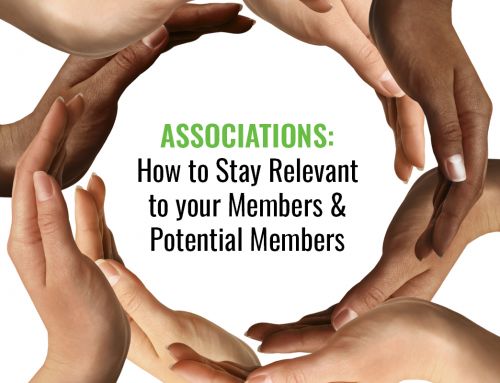Board Meeting Blahs
Your board isn’t listening to you… Now what?
Part of being on an association board seems to be the almost constant struggle to accomplish what you need to in a limited amount of time each month. When all the board members start to feel the pressure of deadlines, board members can feel railroaded and unheard, or can start to feel annoyed with others or disinterested in the issues at hand. After witnessing this in board meetings, you may be asking yourself “Is this normal? Is this board or organization even worth it at this point?”
Let me tell you: Yes, it is normal, and yes, the organization and board are still worth your time and effort if you still believe in the cause behind the bureaucracy. Why? Each board goes through the phases, often due in part to the burnout of members or when new members are added, changing the dynamic people are used to working in. If you are a board member for an organization that hosts fundraising banquets or other events, this is also a time that can increase the pressure on the association board and push you into more disagreements than normal.
Here are five tips that can help you meet those deadlines and keep healthy relationships among board members that you can use next time the stress starts to build.
1. Make sure you are speaking the same language
Sometimes it feels like board members are talking past each other. To prevent this, make sure you are speaking the same language. Instead of vaguely referencing association missions and goals, ask board members to identify which activities will benefit the specific primary goals of the organization. Additionally, if you find this is a consistent issue in your organization, start each board meeting with focusing on the mission of the association and specifying what you will be focusing on that meeting.
2. Utilize SMART goals to provide clear expectations for board meetings
SMART goals are common in the business world and are applicable to associations as well. “SMART” is an acronym for Specific, Measurable, Attainable, Relevant, and Timely. For example, instead of saying “We will send an email to our association members” the goal would become “We will each write an article pertaining to current events in our industry to compile into an email newsletter that will be sent out at the end of next month”.
Using SMART goals increases individual and group accountability, unifies the group, and opens the discussion of issues in a more directed way, which allows members to communicate clearly on the same issues, preventing people from feeling unheard.
3. Encourage board members to step out of their comfort zone
Board members tend to lean toward being involved in things they feel comfortable doing. This also means that they tend to group with people they know within the board or association, which can manifest into cliques forming that make board members feel unheard. If this is something your association board struggles with, encourage members to step out of their social groups and their comfort zones and try something new. This will encourage them to strengthen relationships outside their social circle as well as expose them to other areas of association management that could help them view issues in your association more holistically.
4. Quiet your own agenda
One of the many reasons that people do not feel listened to or feel railroaded is that they are speaking with people who are listening to be polite. One way to prevent this from happening is to quiet your own agenda when you are listening – to listen with the intent to learn, not simply listening to then get your turn to speak about your plans for the association.
5. Ask more questions
Still feeling like your board is struggling to connect and accomplish? Ask more questions. There can be underlying issues that haven’t been addressed yet, and the only way to identify and resolve those issues is to ask more questions.
In the end, these five tips are the start of unifying your board, accomplishing your deadlines, and getting your association board on track to have successful meetings, even when the stress is on. Your board members are only human, and may need occasional reminders to keep them on track and working to further the mission of your association.

About the author:
Madison is currently finishing her undergraduate degree in Business Management with a minor in Small Business Management and Entrepreneurship from Montana State University. Having been involved in the events industry for several years, Madison enjoys providing an excellent client experience from start to finish.








